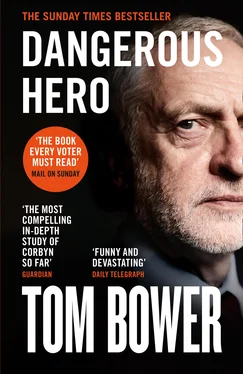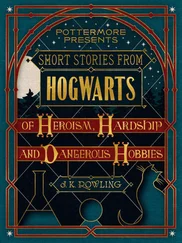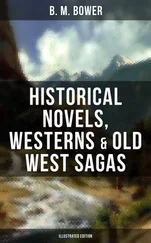In the country as a whole, to prevent an economic collapse Callaghan had imposed a 5 per cent limit on pay increases, but it was not long before the bulwark was crumbling. Trade union leaders warned that high inflation was eroding their members’ wages, and that they were unable to hold back pay demands. In October 1978 Labour was still ahead in the opinion polls, but despite expectations Callaghan refused to call an election. Soon after, the dam broke. When their demand for a 20 per cent pay increase was rebuffed, road haulage and oil tanker drivers went out on strike; some rail workers followed. Then Liverpool’s dockers walked out, crippling not only Britain’s biggest port but devastating local industries and eventually the city itself. Against this background, NUPE demanded a more than 40 per cent wage increase for council workers. The government refused, and Corbyn called on his members to vote for a strike.
Leading the militancy was Jack Jones, the recently retired general secretary of the Transport and General Workers’ Union, Britain’s largest trade union. Callaghan was stymied. He relied on Jones to support his economic policy, even though MI5 had warned Harold Wilson that a raft of British trade union leaders were being paid by Moscow to advance communism in Britain. Among them was Jones, identified as a paid Soviet agent since the mid-1930s. Wilson had repeated that intelligence to his successor, but Callaghan chose to ignore the danger. That Christmas, the country sensed the lull before the storm. Corbyn stood and waited.
Jane Chapman was torn. Politically and as an academic, she was a rising star, but her personal life made her miserable. For Christmas lunch she prepared a special five-course vegetarian meal for Corbyn and Piers. ‘They stuffed it down their gullets and never said thanks,’ she recalled in an even tone. Her husband, she knew, would have been happy with a can of beans: ‘Usually Tesco, not Heinz, but he wouldn’t know the difference. It was all just fuel to keep him going.’ Their conversation was, as ever, about politics, mainly the inevitability of widespread strikes after the holiday.
Within Haringey council, everyone knew about Corbyn’s conflict of interest. He was in charge of the employment of NUPE members, and at the same time he was their trade union representative organising a strike against the council. He was also responsible for the housing maintenance department, from which £2 million had gone missing annually for several years in succession. Council employees were both stealing money and inflating their claims for overtime. The consequence was a two-year backlog of repairs to council homes. Because workers had failed to do the necessary repairs, Haringey’s housing was in a bad state, not least on the Broadwater Farm estate, the Tottenham home of over four thousand people that was ostensibly managed by Chapman in her role as chairman of housing. She would claim that the estate’s day-to-day management had been delegated to a local association, but, along with her husband, she was doing little to remedy the borough’s appalling housing shortage. In her defence she could rely on the support of Bernie Grant, who tagged the accusations of corruption as ‘absolutely ridiculous’. The Tories called for an independent investigation, but Corbyn refused to countenance it. ‘We will conduct the inquiry,’ he said, despite a previous internal inquiry ending, according to the Tories, in ‘a whitewash exercise’. No one expressed any confidence in Corbyn’s investigation, especially as his solution was to increase the number of council workers without their either carrying out any identifiable tasks or producing any benefits to the local community.
In late December 1978, Haringey’s employees’ demands for a 40 per cent pay increase were rejected – at the time that private sector employees were accepting 7 per cent rises – and they went on strike. Corbyn, even though he was their employer, joined them as a NUPE official on their picket line outside the council’s premises. Rapidly, Haringey’s streets filled with bags of uncollected rubbish, children could not enter their schools (the caretakers prevented them), and repairs to council homes were abandoned. ‘Volvos are sliding on the ice on Muswell Hill,’ Corbyn gaily told Toby Harris, the local party chairman and a fellow councillor. The sight of suffering middle classes, Harris noticed, evidently pleased Corbyn. Identical strikes hit many parts of Britain. The lurch towards national panic was highlighted by council workers refusing to bury the dead. Newspaper photographs of Haringey’s plight showed the irate parents of some of the 37,000 children denied their education. ‘The press is just full of crisis, anarchy, chaos, disruption,’ Tony Benn recorded in his diary on 22 January 1979. ‘I have never seen anything like it in my life.’
With noticeable glee, Corbyn continued to support the strikers. On NUPE’s behalf, he had skilfully organised the dustmen’s dispute. Only the drivers went on strike. The loaders stayed at ‘work’, and shared their wages with the drivers, while Corbyn refused to hire private contractors to collect the rubbish. He also sided with the school caretakers, who were forbidden to hand over the door keys to headmasters to open the borough’s ninety-six schools. Teachers were ordered not to enter the buildings, and those who agreed to help educate children outside their classrooms were threatened by a NUPE rent-a-mob, vocal agitators summoned by the union to assert its cause. Haringey’s parents were furious that no other children in London were being denied their education, but Corbyn dismissed their protests as immaterial to the workers’ rights, which he said came first. The parents staged several public demonstrations, protesting that Haringey had failed in its statutory duty to provide education, but Corbyn arranged for Trotskyites, holding banners that read ‘Low pay, no way’, to stand between them and the TV cameras. ‘He wasn’t a great one for education,’ recalls Chapman, ‘and as he didn’t have kids he didn’t care about opening the schools.’
Although lambasted by local newspapers, Corbyn was ignored by the national media – the chaos was universal, not just in Haringey. The strikes ended after six weeks. In that decisive moment, the post-war consensus between Labour and the Tories to accept the state’s control of markets, industries and housing was over. Most Britons blamed the trade unions for crippling industries, and in particular their restrictive practices which prevented modernisation and lowered productivity. Conservative leader Margaret Thatcher was committed to unravelling the monopoly of state socialism. By contrast, the left was excited by the display of raw working-class power. Polls showed that the strikes were highly unpopular with the public, but Corbyn dismissed this, and ignored complaints by local NUPE members that his political agitation was coming at the expense of their private lives.
There were consequences. Corbyn had forbidden private construction workers to cross the picket lines, and eventually the council had to pay them £6,160 in compensation for loss of earnings, the equivalent today of £25,000. A committee was set up to award bonuses to council workers who had to clear the backlogs caused by the strike: Corbyn was its chairman. His conflict of interest was referred by the borough’s chief executive to the director of public prosecutions. He would be acquitted of any wrongdoing, and was merely castigated for managerial incompetence. Around the same time, he forbade an animal circus to perform in the borough.
The strikes divided the forty-two Labour councillors in Haringey. The moderate majority, with the support of the seventeen Tory councillors, opposed Corbyn’s ambitions to turn their borough into a mini-Marxist state. In his undisguised bid for power, he challenged council leader Colin Ware, a conventional social democrat. Although he was defeated, he had demonstrated that he had considerable backing. ‘You could not out-left Corbyn,’ recalled Robin Young, the Labour whip. ‘He detested everyone who disagreed with him. And he always got others to do his dirty work.’ Constantly calculating the numbers and the strategy to assert control, Corbyn quietly ordered junior councillors to propose motions to destabilise the moderates, encouraged activists to challenge his ideological enemies in the Labour branches, and energetically recruited far leftists as Labour Party members. As an organiser he was showing real political gifts. Young’s biggest gripe was that ‘Corbyn played no part in building Haringey’s houses and social services. He just played politics.’ Even Mark Killingworth, a fellow left-wing councillor, had grown to dislike Corbyn’s conspiratorial ways. ‘He wanted all the power and to be the one leader everyone should follow. Jeremy and Jane turned every meeting of the Labour group into a terrible argument.’
Читать дальше










